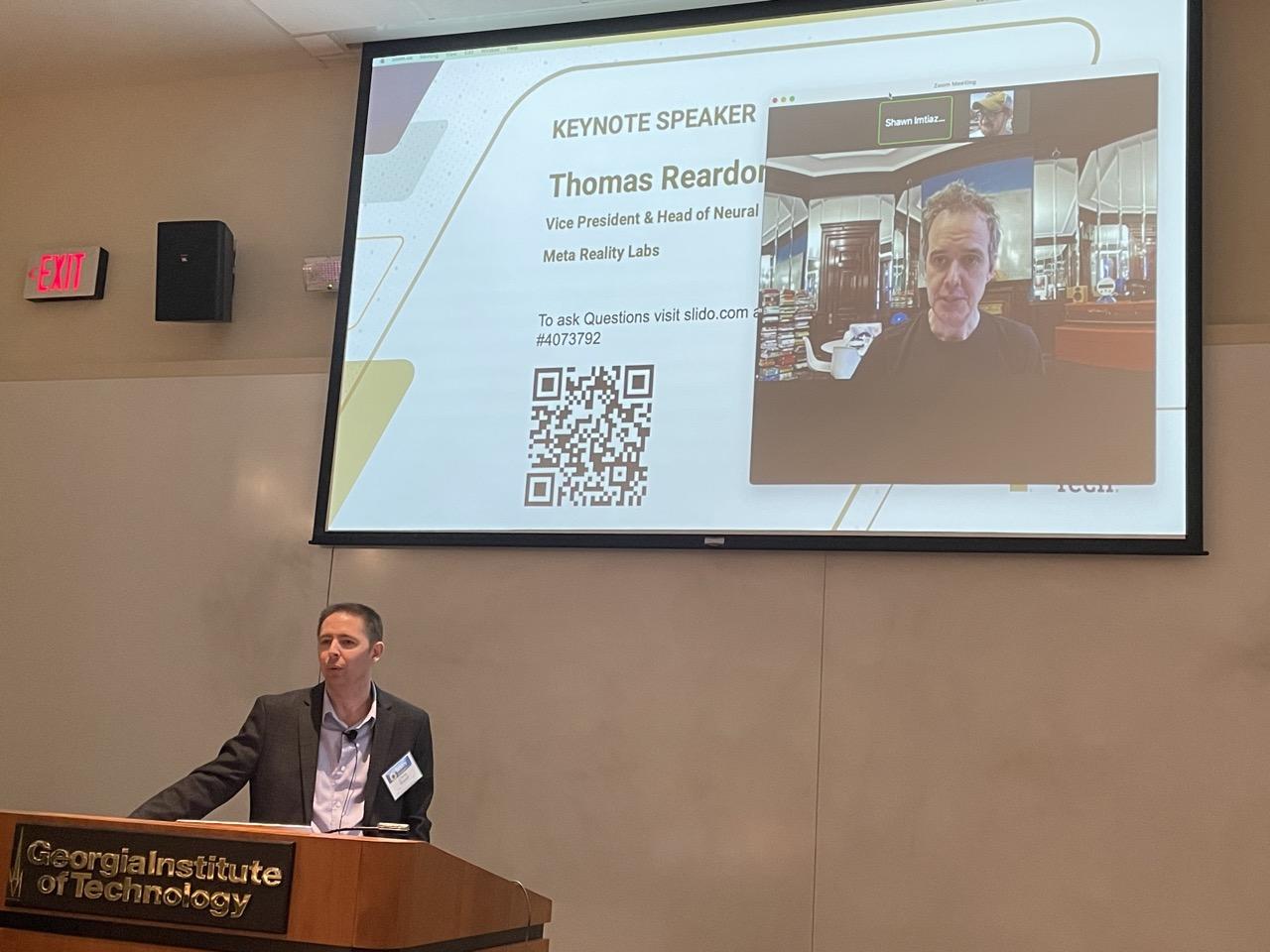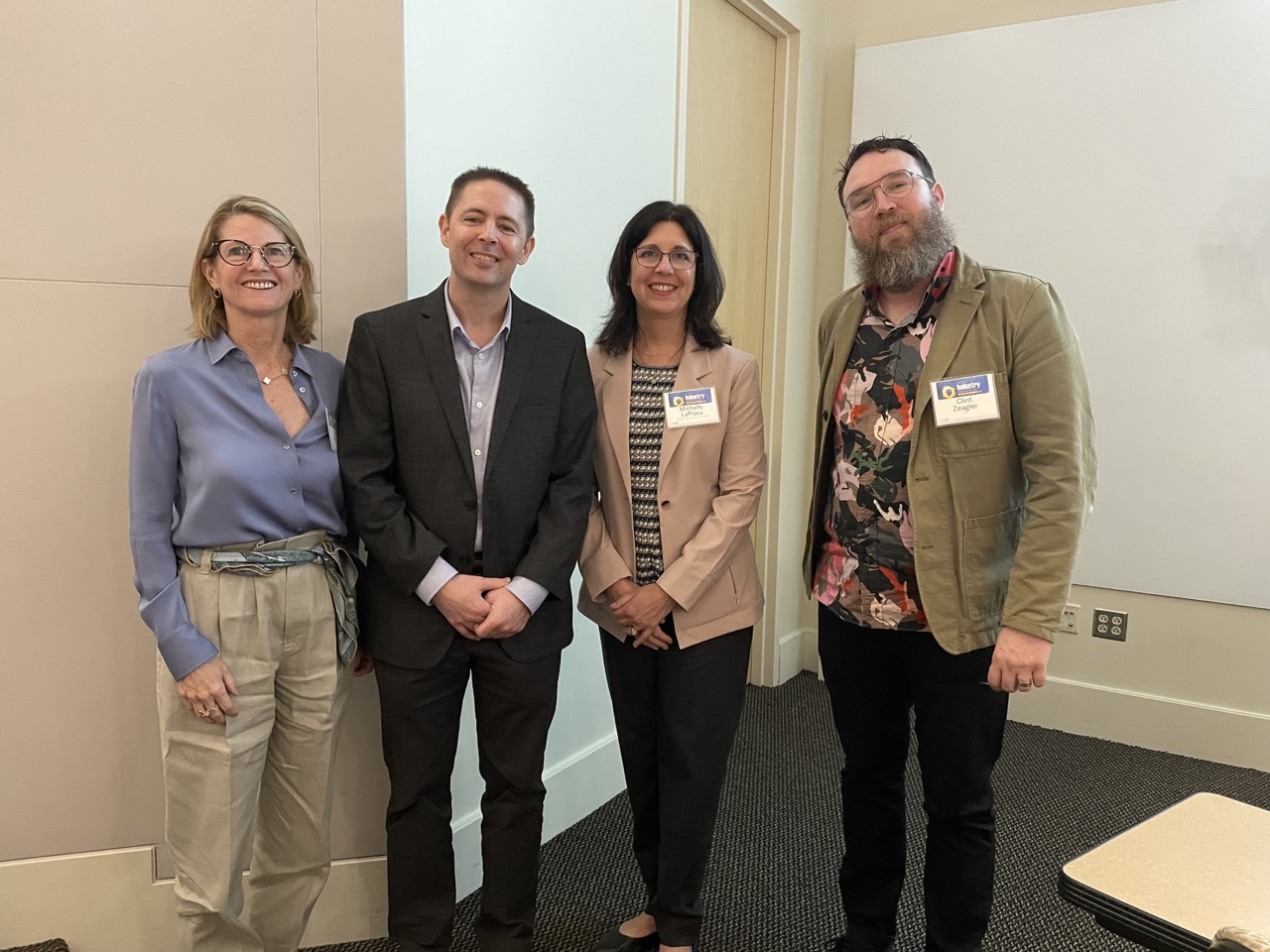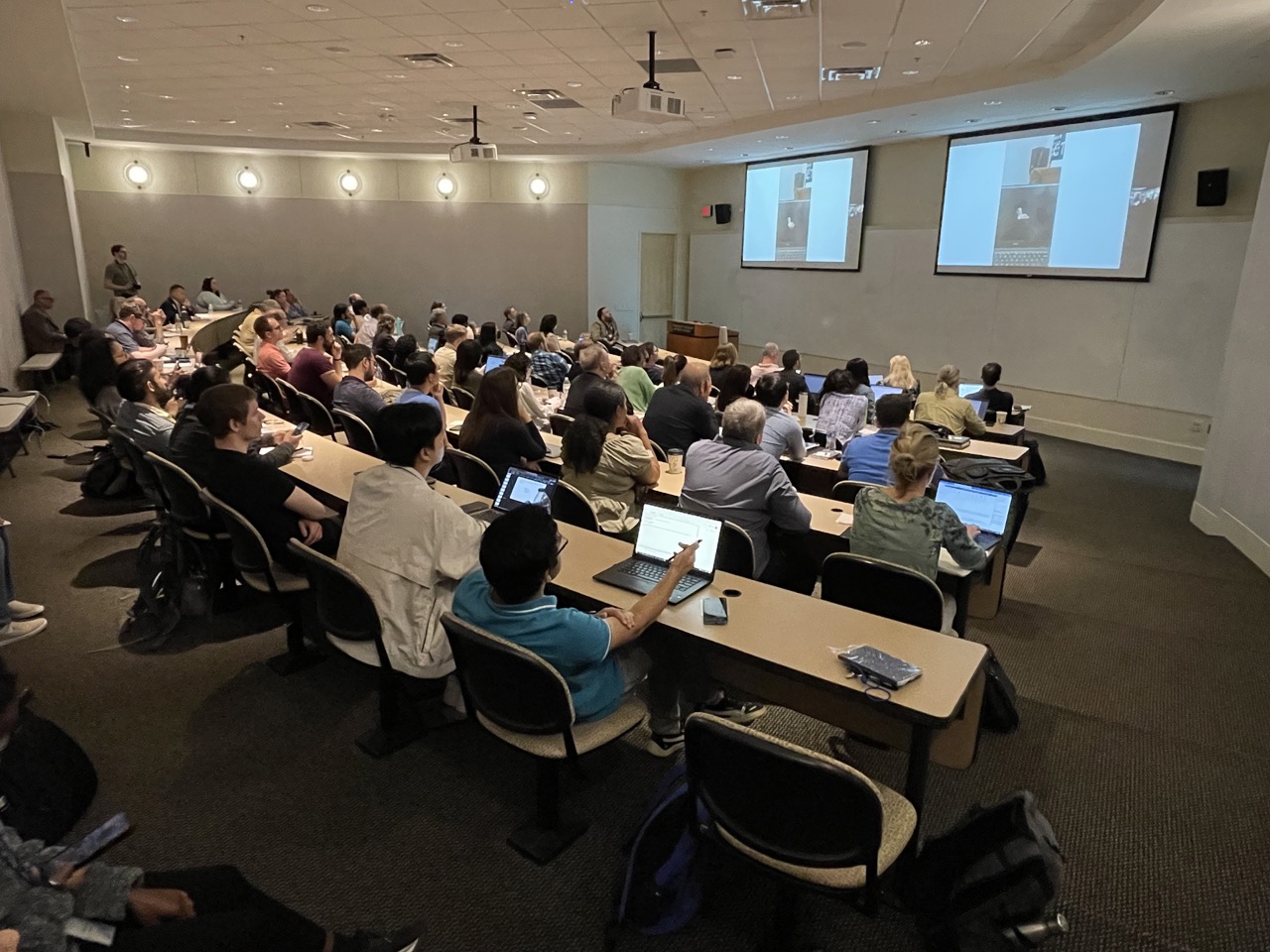Industry Innovation Day Features Brain and Technology
Apr 24, 2023 —

Meta Lab's Thomas Reardon (pictured on screen) and Chris Rozell, professor and Julian T. Hightower Chair in the School of Electrical and Computer Engineering
More than 150 people attended Industry Innovation Day and the GVU Spring Research Showcase on April 19 held at the Technology Square Research Building conference center on the Georgia Tech campus. This year’s event centered around the brain and neuro-related technologies, and touched on topics ranging from brain computer interaction, cognitive aids, psychology, the future of work, artificial intelligence and various other topics that surfaced due to audience questions. The event was sponsored by the Georgia Tech Institute of People and Technology (IPaT) and the Georgia Tech Neuro community.
The keynote speaker this year was Thomas Reardon, vice president and head of neural interfaces at Meta Reality Labs. Reardon is a highly regarded neuroscientist and entrepreneur who founded CTRL-labs which was acquired by Meta (Facebook) in 2019. He currently leads a team of computational neuroscientists and biotech engineers working to connect neurons to machines via a novel non-invasive neural interface technology. Reardon’s talk topic for this year’s annual Industry Innovation Day was “Consumer Neural Interfaces: View from Meta Reality Labs.” In addition to providing an informative lecture about neural technology, he briefly displayed some of the capabilities of his Meta team’s wrist-mounted, non-invasive device that was able to translate neuro hand activity into its corresponding robotic hand movements.
“Our undergraduate degree in neuroscience is one of the Institute’s most popular degrees,” said Julia Kubanek, vice president for interdisciplinary research at Georgia Tech, who gave several introductory remarks. “The neuroscience area integrates many disciplines across campus such as the arts, humanities, social science, computer science, engineering, business, design, and the basic sciences and is a great example of the true integration of interdisciplinary research in many forms across Georgia Tech. We are particularly grateful for the participation today of companies and other organizations that collaborate with the Georgia Tech community of researchers.”
Leigh McCook, interim executive director of IPaT, emphasized the need to have dialogue and conversations between industry partners and community partners with Georgia Tech researchers to develop supportive research projects and create greater impact in the area of the human technology frontier.
“The neuro space and the IPaT space are natural partners for each other,” said Chris Rozell, professor and Julian T. Hightower Chair in the School of Electrical and Computer Engineering. “This is a perfect day to come together and talk about what the human frontier looks like. Georgia Tech hired its first neuro engineer more than 30 years ago long before it was cool to be an engineer studying neuro. Today, we have more than a 100 faculty spanning six colleges studying neuro-related topics with the additional involvement of Emory University and Georgia State University. We’ve had an incredible trajectory over the last decade and we’ve fostered a growing and active community.”
Following Reardon’s keynote were two interactive panel sessions. The first panel was focused on “brain computer input and output” was led by moderator Michelle LaPlaca, professor in the Wallace H. Coulter Department of Biomedical Engineering. Her research interests are in neurotrauma, injury biomechanics, and neuroengineering as they relate to traumatic brain injury.
The panelists were:
- Melody Moore Jackson, professor in the School of Interactive Computing
- Omer Inan, professor in the School of Electrical and Computer Engineering
- Carlos Bremer, president North America Division - Global VP of Knowledge at brain4care
- Isaac Clements, CTO and co-founder of BioCircuit Technologies
The second panel was focused on the “future of cognitive and psychological aids” and was moderated by Maribeth Gandy Coleman, director of research at the Institute for People and Technology where her work has been focused on the intersection of technology for mobile/wearable computing, augmented reality, AI, human computer interaction, healthcare, assistive technology, and gaming.
The panelists were:
- Jennifer R. DuBose, director of the SimTigrate Design Lab
- Tansu Celikel, chair of the School of Psychology
- Deborah Backus, vice president of research and innovation, Shepherd Center
- Barbara Olasov Rothbaum, director of the Emory Healthcare veterans program and chair in neuropsychopharmacology, Emory University School of Medicine
“I am really pleased with the connections we were able to foster today,” said Clint Zeagler, co-director of strategic partnerships for IPaT and principal research scientist. “Key to translational and impactful research outcomes are transdisciplinary collaboration across campus and with industry and corporate partners. Events like this with both academic and industry experts allow for deep conversations and spark interesting and innovative projects.”

Leigh McCook, Chris Rozell, Michelle LaPlaca, and Clint Zeagler

Part of the audience for Thomas Reardon's talk




